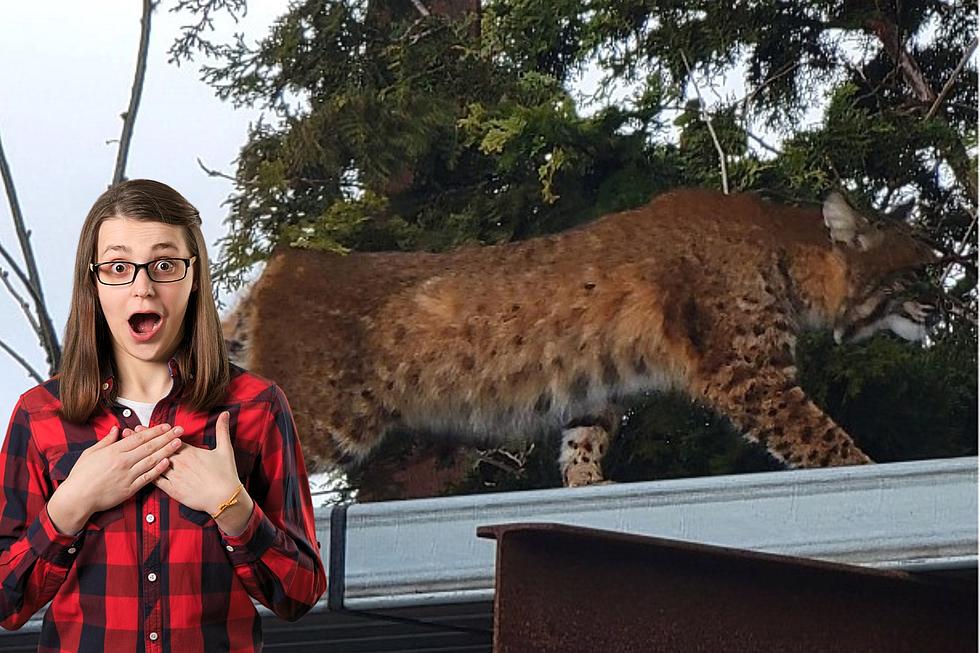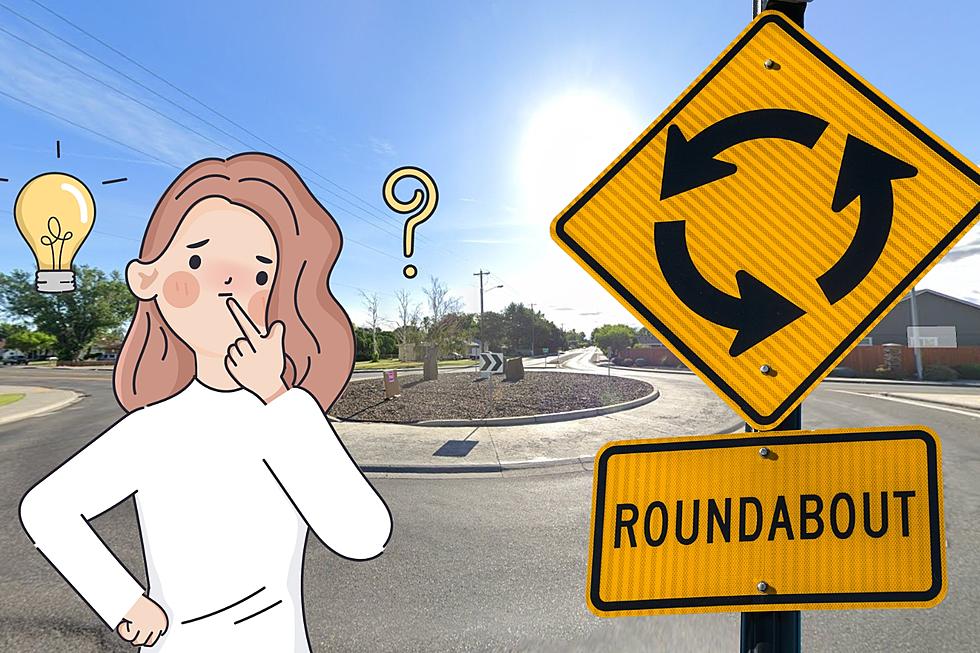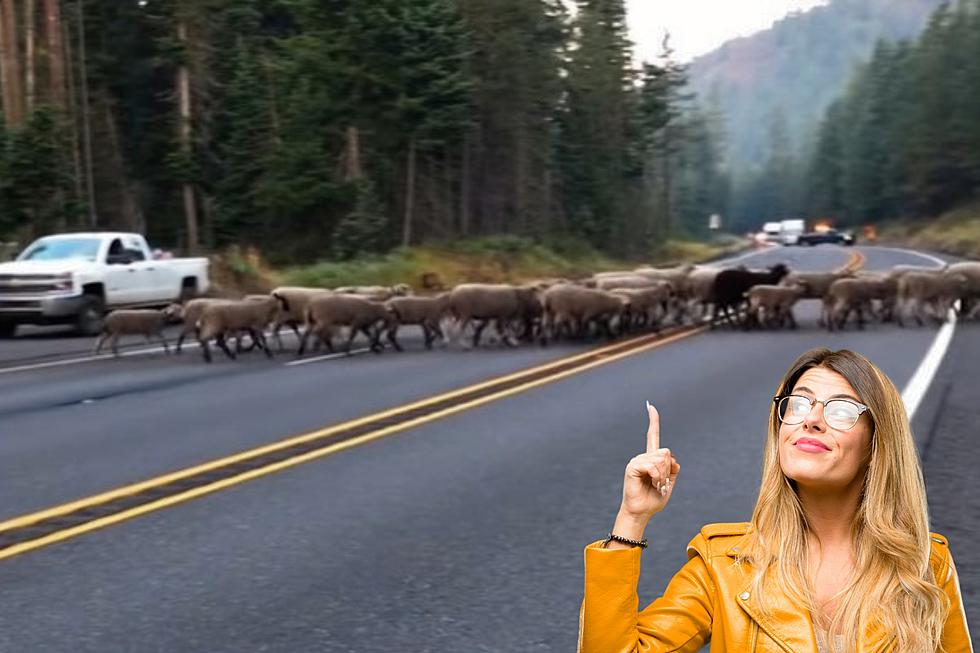
Beware! Scary Sighting On a WA Rooftop, Here, Kitty Kitty
It was a rare, scary sighting on Tuesday in Mount Vernon, Washington.
"Bobcats are more common than most people realize."

Workers with WSDOT were able to get some awesome photos of nature at its best. A bobcat dropped by the maintenance facility near Little Mountain Park.
According to the Washington Department of Fish & Wildlife, "Bobcats are more common than most people realize."
What can you do to prevent a bobcat from coming onto your property?
Don’t feed wildlife. This includes deer, feral cats (domestic cats gone wild), and other small mammals. Remember predators follow prey.
Prevent the buildup of feeder foods under bird feeders. Bobcats are attracted to the many birds and rodents that come to feeders.
Feed dogs and cats indoors and clean up after them. If you must feed outside, do so in the morning or midday, and pick up food and water bowls, as well as leftovers and spilled food as soon as pets have finished eating. Water, pet food and droppings attract small mammals that, in turn, attract bobcats.
Keep dogs and cats indoors, especially from dusk to dawn. Left outside at night, small dogs and cats may become prey for bobcats (which have attacked cocker-spaniel-size dogs).
Enclose poultry (chickens, ducks, and turkeys) in a secure outdoor pen and house. Bobcats will eat poultry if they can get to them. Note: Other killers of poultry include coyotes, foxes, skunks, raccoons, feral cats, dogs, opossums, weasels, hawks, and large owls.
LOOK: Here are the states where you are most likely to hit an animal
LOOK: Stunning animal photos from around the world
WATCH OUT: These are the deadliest animals in the world
States with the most registered hunters
More From 98.3 KEYW









